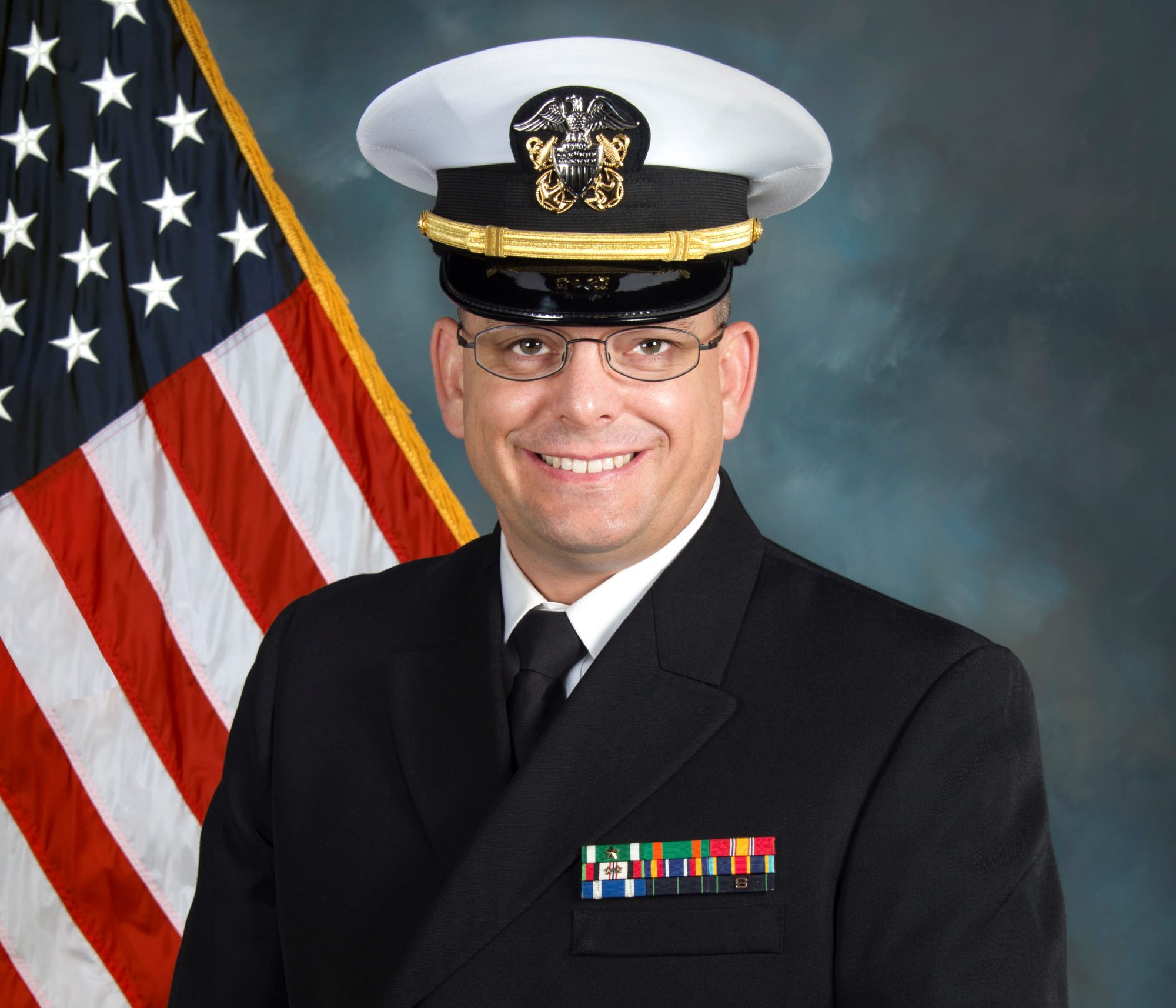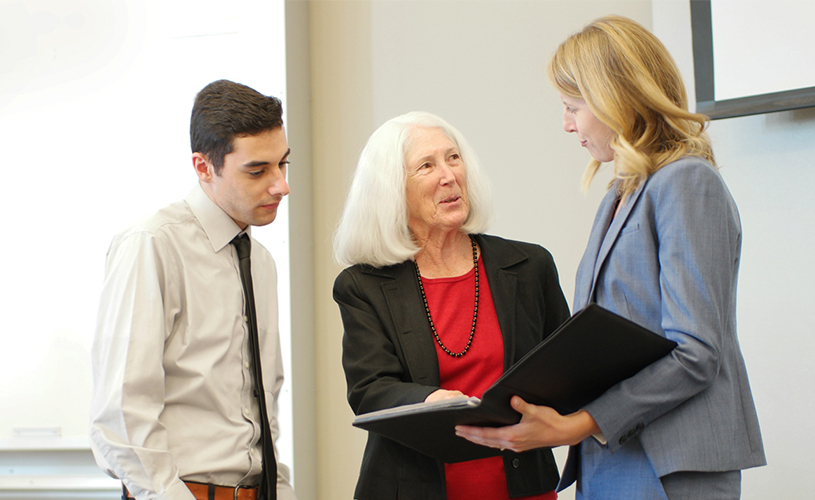I was commissioned as a Lieutenant Junior Grade in the U.S. Navy the morning of graduation in 2009. As I ran out of the Huntsman Center that afternoon, I turned and saluted my MHA classmates. Little did I know how symbolic that gesture was of the next eight years of service. As a Navy general healthcare administrator, I’m always presented with new roles and responsibilities. I’ve found that I can always draw from my academics and the connections I’ve made along the way for needed strength.
After graduating from the David Eccles School of Business and completing a five-week crash course on being a naval officer, I was sent to Groton, Connecticut. I started as the access to care manager for a clinic servicing over 11,000 beneficiaries in four states. In this position, I applied the principles of production and operations management taught to me by Dr. Glen Schmidt, maximizing throughput while giving providers much-needed administrative time. I also continued learning through my roles as assistant emergency manager and as a member of the Controlled Substance Inventory Board.
In 2011, I was deployed to Afghanistan as the administrator of a forward-deployed surgical hospital (think MASH) where we cared for coalition forces, civilians and Taliban alike. This was my introduction-by-fire into leadership. As COO, I was the sole officer over everything non-clinical. I relied on the skills I learned as a student to stay organized and prioritize my work quickly and effectively. I also began actively developing the leadership skills that Dr. Abe Bakhsheshy beautifully presented to our class.
When I returned to Groton, I was the department head for staff education and training, where I continued applying the leadership theories I learned in the MHA program. Within a month, I assumed the role as interim chief operating officer of the clinic until my transfer date. So there I was, two years out of school with a staff of over a hundred people and responsible for all administrative functions of a large clinic. It was a fantastic and challenging opportunity.
I was then transferred to Navy Medicine Headquarters in Washington, DC where I was the executive assistant for the principal over medical facilities, logistics, physical security, safety and occupational health worldwide. I functioned much like an assistant chief of staff under the principal’s deputy. I was responsible for workflow efficiency and ensuring that all correspondence and policy leaving the division was well written. I also handled human resources, communications, budgeting and travel for the division. Though I was extremely busy, I learned how policy is made and how Washington works; and the connections I made there set me up for success. I drew on principles learned in Program Planning and Development with Professor Jackie Smith and Health Policy with Professor Doug Hammer.
I’m currently the Officer in Charge of Naval Medical Administrative Unit in Monterey, California. We support a local Army clinic, where our role is to align Army clinical functions to the Navy administrative requirements. I am the liaison between local Navy commands and the Army health clinic, and I sit on the board of executives from Monterey County Health Systems. The position requires communication and political skills to educate and motivate business partners in order to work together toward common goals.
Next year, I will transfer to U.S. Naval Hospital in Naples, Italy, but my exact position is unknown at this time. Shortly after I arrive there, I will be promoted to Lieutenant Commander and will be eligible to compete for director of administration positions around the world. Once selected, I am eligible to be considered for chief operating officer and subsequently chief executive officer positions. I will continue to look for opportunities that allow me to influence corporate culture and provide humanitarian assistance.
The salute I gave my classmates at our MHA graduation symbolized the respect and friendship for those who were involved in creating my foundation. I have continued to turn and salute those who help me build on that foundation. It is an honor to have studied at the David Eccles School of Business and to be a standard bearer for the principles and values I gleaned there.







